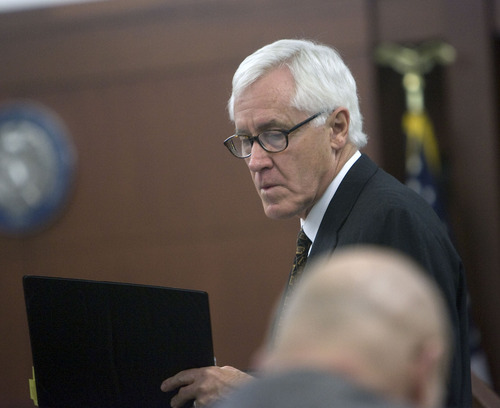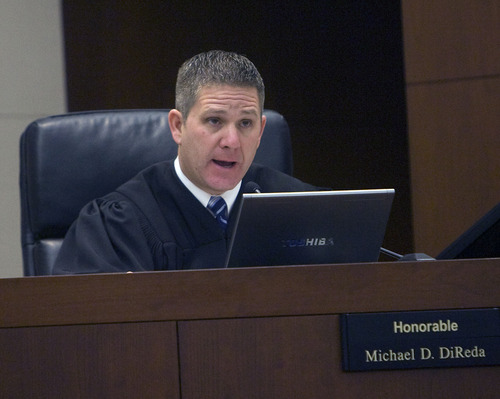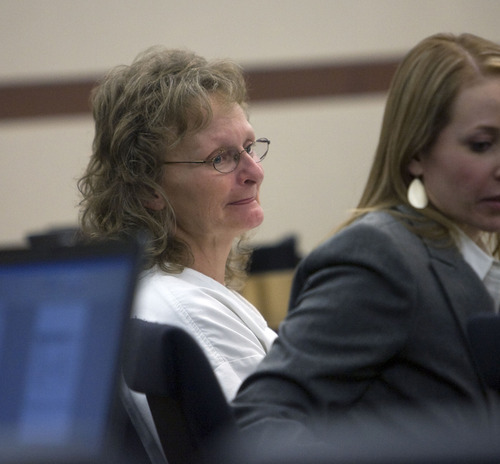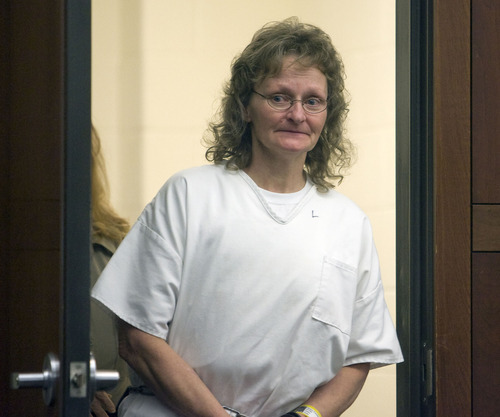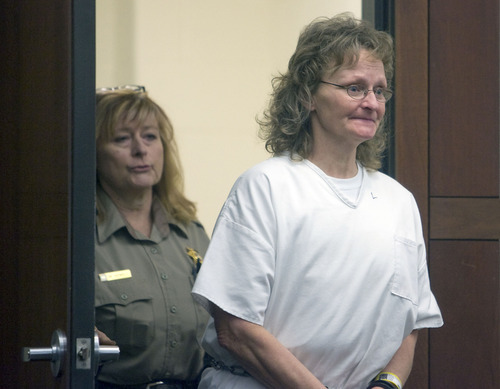This is an archived article that was published on sltrib.com in 2011, and information in the article may be outdated. It is provided only for personal research purposes and may not be reprinted.
When Logan police officers arrived at the home of Lael Brown on Nov. 7, 1993, they thought they were dealing with a suicide. Eric Collins, an officer at the time, checked around the body, lifted the sheets and stood and knelt on the bed to search for a weapon. Collins turned off the clock radio next to the bed where Brown lay dead, shot three times. When a weapon was not found, the officers realized it might be a homicide, Collins said.
Compromising the crime scene was the first mistake police made in what attorney Alan Sullivan calls a botched investigation. He says police also failed to collect and preserve evidence and didn't follow all the leads in the case.
That's why his client, Debra Brown, who is not related to Lael Brown, was wrongly convicted of the crime back in 1995 and sentenced to up to life in prison. Since then she has been incarcerated at Utah State Prison.
"The reason we don't have more evidence is because the Logan Police Department destroyed it or failed to collect it," Sullivan told the court Tuesday.
Brown, 53, is seeking to establish her innocence in 2nd District Court in Ogden before Judge Michael DiReda thanks to legislation passed three years ago that allows a person to challenge the facts of a case without new DNA evidence. The Rocky Mountain Innocence Center is aiding Sullivan in Brown's case. This is the first case reviewed under the law.
Lael Brown owned rental units around the valley, and Brown cleaned them and performed maintenance work. The two became good friends and met regularly for coffee. He also gave her a key to his home.
Debra Brown was the first to find Brown's body.
Prosecutors said Tuesday that Brown had a motive for the crime; she had forged more than $3,000 worth of Lael Brown's checks.
Assistant Utah Attorney General Scott Reed reminded the court that Debra Brown was found guilty by a jury.
"She is not innocent in the legal system," Reed said. "The petitioner cannot establish to this day that she did not commit the crime."
Reed argued during his opening statement that the hearing is not a "do-over" or an ongoing super appeal. Creating reasonable doubt or speculation because of alleged police blunders or inadequate council is not what the hearing is for, he added.
But Debra Brown's defense says the botched investigation led to her conviction.
Sullivan said police didn't preserve or collect evidence, including a bloody hand print found on the front door. Former Logan police Detective Michael Vaugh and officer Patrick Walcott, who testified at the hearing, said no photo, measurement or recording was made of the print.
When asked about documentation of the hand print, one officer said it was a long day and they forgot to set up the camera. The department also turned the house over to the family about 36 hours after the body was found, even though two of the family members were listed as suspects. Sullivan added that the department failed to follow leads of another suspect, a man named Bobby Sheen, who had been evicted from one of Brown's buildings. Sullivan said the lead was not investigated nor was it shared with Debra Brown's defense attorneys at the time.
Sullivan's team plans to call several witness to make their case throughout the week. Debra Brown is expected to take the stand Friday.
From her seat next to her attorneys, Debra Brown smiled at her family and friends in the audience from time to time. Debra Brown's daughter, Alana Williams, who was 11 when her mother was convicted, said the family was happy the court was hearing the case. "We're glad. We're happy. We'll be here to support her."



